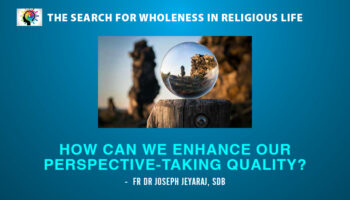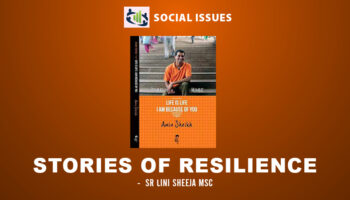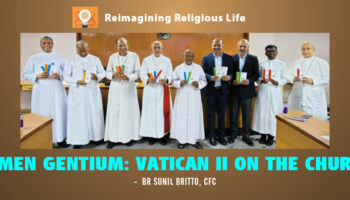You are reading this article now, because you took a decision to do it. You could be doing many other things right now. But you chose to read.
Decisions are something we cannot avoid. From the time we get up until we go to bed, we take many decisions. How do we learn to make GOOD decisions—decisions that increase our happiness and well-being, and do not do us or others harm?
Here are five tips that I have found useful.
1. Seek God’s guidance.
Jason, a married man with three grown-up children, was preparing for his eldest son’s wedding. He told me that every morning, before meeting friends or taking major decisions, he would go the church, kneel and talk to God. While being brilliant and well-educated, he was convinced that “God has a thousand solutions where I see only one. God’s plans are much better than mine.”
This is wise.
God knows me better than I do, and God’s plans for me are much wiser than mine. He is close to me, and cares about my well-being far more than I do. So, before taking any important step, it is a very smart thing to seek God’s guidance.
How do we do it?
Simply by saying a prayer in our heart, calling on God by any of your favourite names for Him, “Help me to take the right decision, according to your plans for me. May my decisions do much good, and never harm anyone.”
Or, you can ask yourself: What would Jesus do in this situation?
Those who seek God’s will and guidance regularly, and try to live by it, develop a wisdom that comes from God. Their decisions tend to be enlightened.
2. Consult a wise person:
Do this especially if the issue is important, e.g., a vocation choice or deciding on higher studies, or seeking serious medical treatment. In such crucial matters, it would be foolish to go by our limited knowledge alone. None of us knows our strengths and weaknesses fully, nor the possibilities open to us.
When Patrick was a novice, he had thoughts of joining a contemplative order. He did not realize that he was idealizing contemplative life, and not looking at himself realistically. A senior priest, known for leading a good life, and guiding others, told him, “Patrick, from what I know of you, you are better suited to an active religious order.”
Patrick would later say that this guidance proved to be wise.
If the issue is minor (what to eat for breakfast, or which TV show to watch), we need not waste others’ time by consulting them, of course! But serious decisions affect our happiness and the well-being of others. Talking to a wise person clarifies matters, helps us to see options we had not thought of, and leads us to discover gifts we did not even know we had. A good parent or formator or counsellor gives us loving attention, and frees us from undue anxiety, and help us to take decisions with greater clarity and confidence.
3. Check how you would advise someone else:
If someone else were to come to me with this problem, how would I advise him/her? That may be the advice I need to give to myself.
4. Write down the pros and cons:
If you are confused about the choices before you, writing can clarify matters. Write down three things: OPTIONS, OUTCOMES, FEELINGS. That is: What are the options available to me? At times we say silly things like, “Oh, there are a hundred and one things to think of!” No, there aren’t. Write down your real options. They will probably come down to two or three. Next, write down the possible outcome for each option. An example would be: If I leave the convent, I will have to find a job and look after myself. Thirdly, how am I likely to feel in each option? Where do I think I feel happiest and most at peace? Where do I think I will be more troubled or restless? Our feelings are (often, not always) good indicators of what is good for us.
There are no perfect choices in life. We will not like everything about any option, but writing helps to clarify our possibilities.
5. Do not decide when moved by intense emotion:
When we are moved by intense anger, or deep sadness, or bitter jealousy or strong sexual attraction, our judgement is clouded. We tend to make stupid decisions that we later repent of. Thus, for instance, a jealous person may go around pulling down the person s/he is jealous of; the speaker is only cutting one’s own throat, winning the contempt of people. Or, if I am intensely angry, I will get into fights, abusive language and physical violence, and make enemies unnecessarily. Or, if I feel depressed, I may want to run away from my present setting, or get drunk or even think of suicide. Or if a boy is strongly attracted to a girl, he may imagine her to be more perfect than she really is, and decide to run away with her, without thinking of the consequences. Marriages based mostly on strong sexual attraction are on the rocks very soon.
When we are under the sway of strong (especially “negative”) emotions, that is the time to wait, say a silent prayer, and talk things over with someone we trust. It is probably the worst time for taking decisions.
To conclude:
In minor matters, spontaneity is fine.
In major decisions: pray, reflect, consult, write down options.
Strong emotions (especially anger, jealousy, depression and lust) blind us and can misguide us. Pause, pray, confide in someone.
May you learn to make wise decisions—choices that lead to your happiness and integral well-being.
– Dr Jeff T. Manning
To subscribe to the magazine Contact Us





